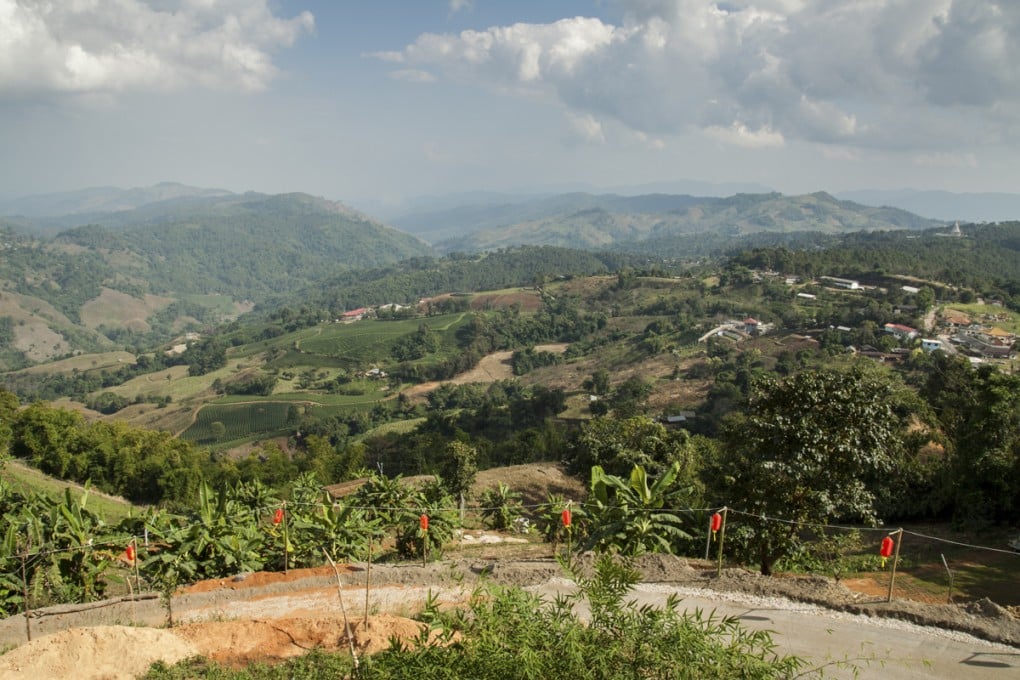Mae Salong, where Kuomintang’s ‘lost army’ put down roots
In Mae Salong, northern Thailand, home of the Chinese Nationalists' 93rd division, tea and coffee plants have replaced the opium poppies that once provided a living. Words and pictures by Kit Gillet

Surrounded by lush rolling hills dominated by seemingly endless rows of tea plants, the solitary tomb of General Tuan Shiwen looks strangely out of place on a hillside in northern Thailand, as does the ethnically Chinese soldier who stands beside it.
Dressed in military fatigues – with sunglasses hiding an old eye wound – the 55-year-old soldier offers sticks of incense to those who have come to pray at the tomb of the general, who led his troops over the mountains into Thailand in the late 1960s, via Myanmar, after refusing to surrender to the communist forces at the end of the Chinese civil war, in 1949.
The “lost army”, the Kuomintang’s 93rd Division, spent decades wandering the region between China, Myanmar and Thailand, trying to find a home while constantly fighting the communists and those who wanted to move them on. Finally, in the 70s, they were granted land around Mae Salong by the Thai government, in return for helping to crush the communist guerrillas in the mountains of northern Thailand.
At the time, Mae Salong was little more than a thickly forested hillside. As the impoverished Chinese slowly created their new home, they turned to opium in order to survive and fund their continuing armed struggles, gaining a dubious reputation as major drug traffickers. Later, the population turned to tea as they became more established and less military-minded (it wasn’t until the 80s that the soldiers finally put down their guns for good).

“Almost everyone who lives here is Chinese,” says 21-year-old Huang Meidian, in Putonghua, while selling high-grade oolong tea to passers-by.